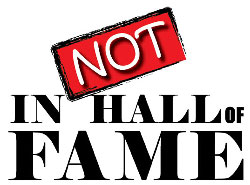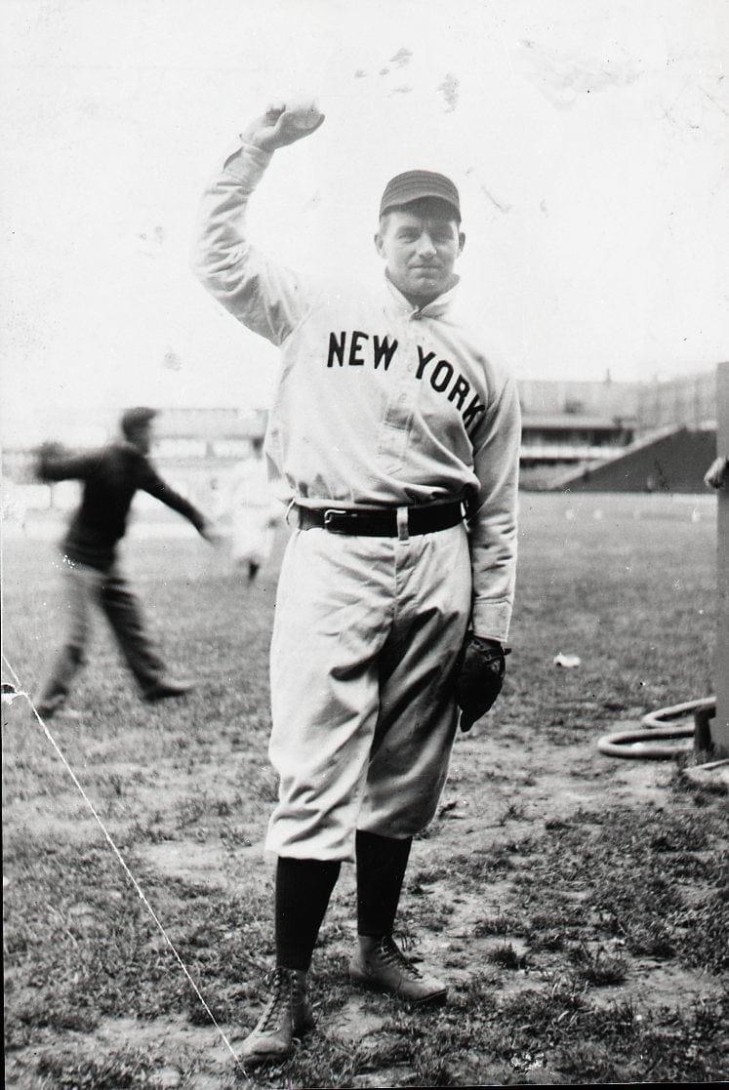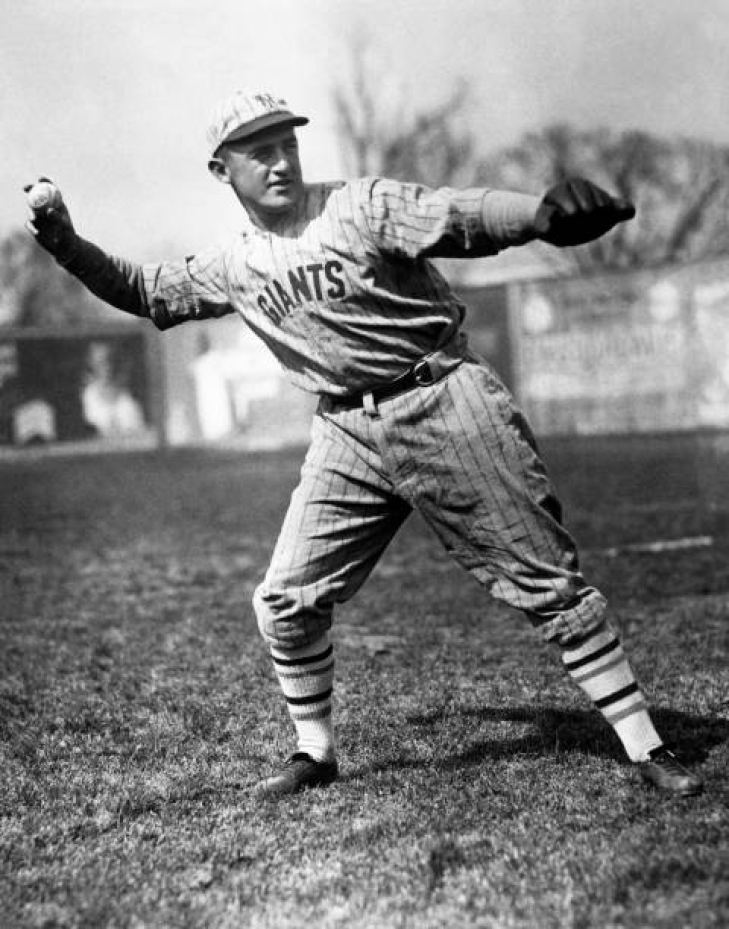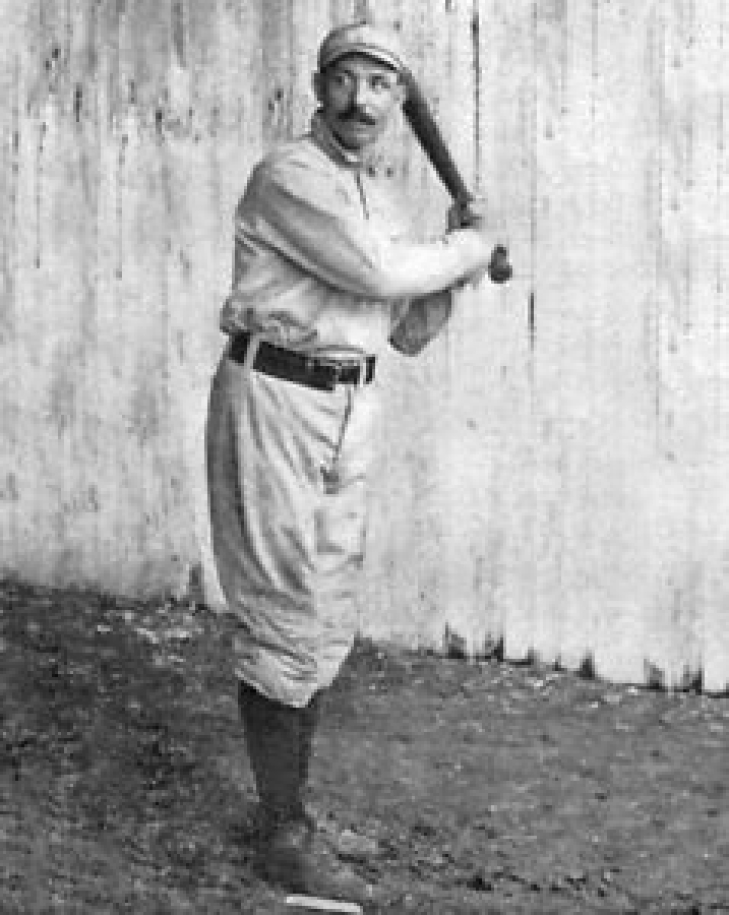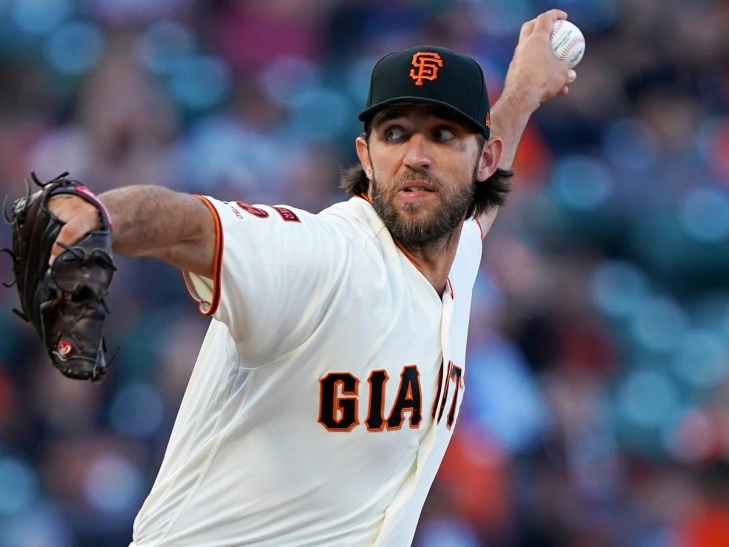
Committee Chairman
26. Joe McGinnity
Joe McGinnity was initially called the "Iron Man" due to working in an iron foundry in the off-season. It would later become more appropriate to refer to his durability on the mound.
McGinnity debuted in the Majors first with Brooklyn, where he led the league in Wins in his rookie and sophomore years. Jumping to Baltimore Orioles of the upstart American League in 1901, following his Manager John McGraw, he would do so again in 1902, when the Orioles collapsed, and McGraw took over running the New York Giants. This is where McGinnity took his nickname to its logical conclusion.
The right-hander was one of the most dominant forces in the 1900s and certainly one with the highest workload. McGinnity again led the NL in Wins three more times and helped New York win the 1905 World Series. Under the shadow of Christy, Mathewson was still a star in his own right, winning the ERA Title in 1904 (1.61) and appearing in the most Games of any Pitcher five years in a row (1903-07). His 434 Innings Pitched in 1903 set a National League record, which is untouchable.
Declining in 1907, a bad fever took him out for much of 1908. After the season, he returned to the minors as an owner/player/manager. McGinnity left New York with a sweet record of 151-88 and an ERA of 2.38.
The Old Timers Committee selected McGinnity to the Baseball Hall of Fame in 1946.
20. Frankie Frisch
Frankie Frisch was arguably more known for his time with his second team, the St. Louis Cardinals, but the switch-hitting infielder was a bona fide star with his first MLB Team, the New York Giants. In some statistics, he was better.
Earning the nickname of the “Fordham Flash” as a four-sport star at the university mentioned above, Frisch signed with New York in 1919 without having to spend a day in the Minors. Playing at Third and eventually moving the Second Base, Frisch was a natural baseball player, providing speed, average, and defense throughout his career.
A player on the rise in 1920, when the Giants won the World Series, Frisch broke out in 1921, batting .341, with 211 Hits and a league-leading 49 Stolen Bases. New York won the World Series again, with Frisch playing a more significant role, batting .471 in the Fall Classic.
After his 1921 campaign, Frisch never batted under .300 as Giant again with less than 20 SB, and also had a first-place finish in Hits (223) in 1923 and Runs (121) in 1924. Frisch was a superstar, but this was not an era where the players were king; the managers were. He missed a sign in a game late in the 1926 Season, and after, he was scolded in front of his teammates by the Manager, John McGraw, leading to Frisch leaving the team. He came back, but the damage was done. Frisch was traded to St. Louis for another Hall of Famer, Rogers Hornsby, who, too, had an impasse with ownership.
The Baseball Hall of Fame elected Frisch in 1947, who won two more World Series Titles with the Cardinals.
16. George Davis
After playing his first years in the Majors with the Cleveland Spiders, George Davis was traded to New York in a pre-season 1893 trade that proved beneficial to the Giants.
A versatile player who started multiple games at Shortstop, Third Base, and the Outfield, Davis' hitting flourished under the new rules of the pushed back Pitcher's mound. Davis batted over 300 over the next nine seasons, three of which saw him exceed .350. He collected over 100 RBIs three times, including a league-leading 135 in 1897. Like many of the other players of his era, Davis was an excellent base stealer, swiping 357 bags of his 619 as a Giant.
Davis would jump to the Chicago White Sox of the American League before the 1902 Season, playing there a season before being forced to return in 1903 to New York, but that was a brief four Games before he was sent to the White Sox, where he closed out his career.
With New York, Davis batted .332 with 1,432 Hits.
Davis was elected to the Baseball Hall of Fame in 1998 when he was elected by the Veteran's Committee.
17. Madison Bumgarner
Madison Bumgarner was the tenth pick of the 2007 Amateur Draft, and two years later, he made his debut for the Giants.
Bumgarner would entrench himself in the Giants rotation the year after in June and became a big part of San Francisco's World Series win that year. Year by year, Bumgarner took over as the ace of San Francisco's staff and played a more prominent role in the Giants' 2012 World Series win.
From 2013 to 2016, Bumgarner was named to the All-Star Game, finished every year with an ERA under three, and had at least 199 Strikeouts. Bumgarner was in the top ten in Cy Young voting in all of those seasons, and his hitting gained him two Silver Sluggers.
What will forever keep Bumgarner in the Giants zeitgeist was his spectacular performance in the 2014 playoffs, where he won the NLCS MVP and World Series MVP, the latter seeing him allow only one over 21 Innings. It is arguably the best performance by any Giants hurler in the post-season.
Bumgarner left San Francisco as a Free Agent for the Diamondbacks, leaving the Bay Area with a record of 119-92 with 1,794 Strikeouts.
